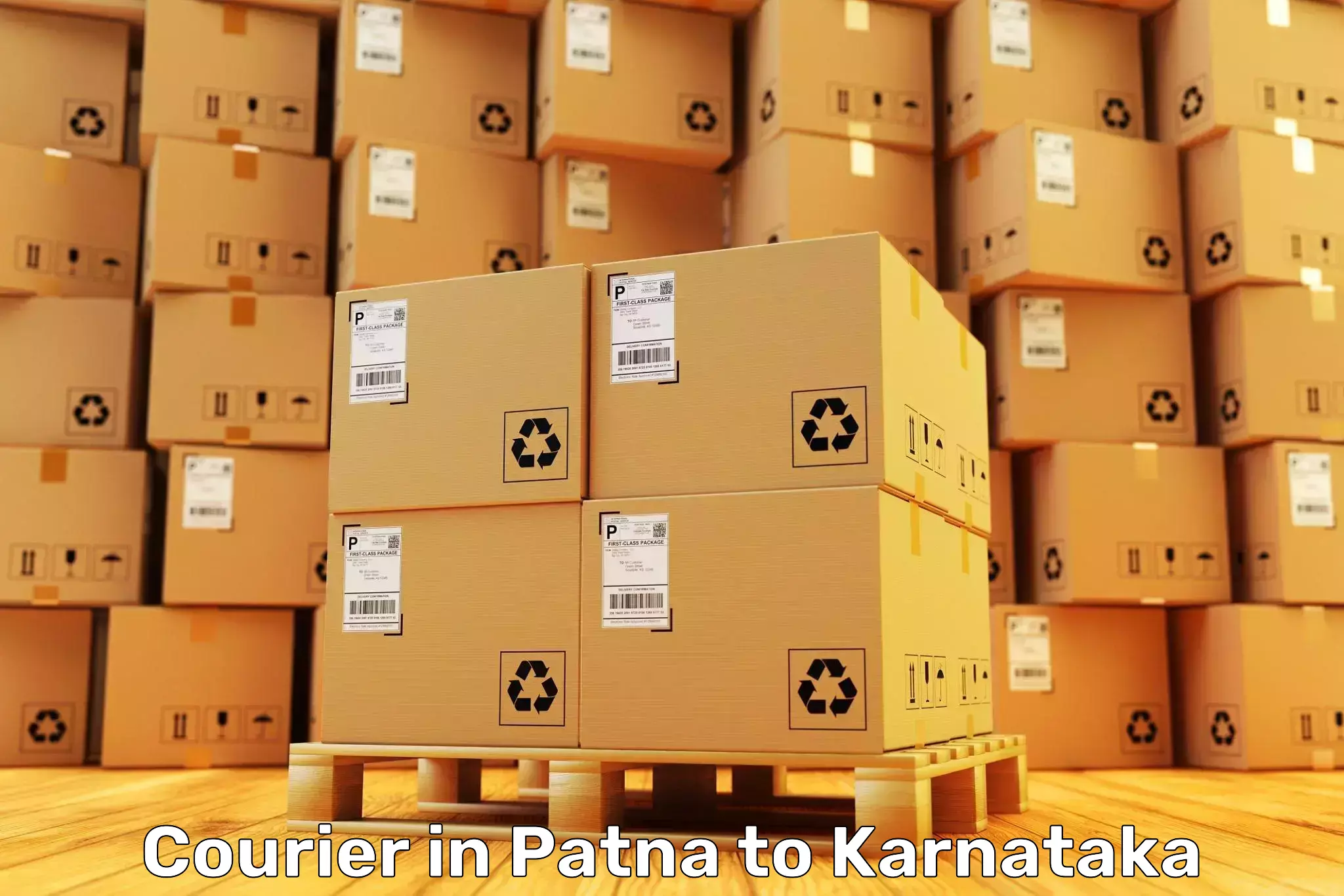
Leading India's march towards advanced transport solutions! Book the best services without any hassle from Patna To Dayananda Sagar University Bangalore, over a call. You can book various services like End-to-end logistics, Freight Transport, Goods transport, Bulk cargo transport, Part Load Transport, etc
Patna To Dayananda Sagar University Bangalore Courier Service Details
| Date: | April 29, 2024 (29-4-2024) |
| Consolidation: | In Sharing with Other Shipment |
| Mode of Transport: | Road, Rail & Air |
| Area/Zone: | Patna Division |
| Destination State: | Karnataka |
| Services: | Heavy goods shipping, Direct transport solutions, Express logistics coordination, Supply chain logistics, Critical freight solutions, Industrial goods transport solutions, Road freight solutions, Secure courier delivery, Integrated supply chain services, Fast transport services |
| Delivery Type: | Door Delivery |
| Source State: | Bihar - BR |
| Current Status: | Serviceable |
| Other Cities: | Courier in Vadodara to Dayananda Sagar University Bangalore and Courier in Pimpri Chinchwad to Dayananda Sagar University Bangalore |
| Charges: | From ₹870 for Direct Pincode & ₹1870 for ODA Pincode |
| Destination City: | Dayananda Sagar University Bangalore |
| Source City: | Patna |
| Nearby Cities: | Patna Courier for Garden City University Bangalore and Davangere University Davangere Courier in Patna |
| Source Geo Coordinates: | 25.5940947, 85.1375645 - (NorthEast L: 25.6564425, 85.2687289, SouthWest L: 25.5596324, 85.017357) |
| Billing Weight: | As per weight, size, invoice value and pin codes. |
Digital Freight Solutions: Revolutionizing Goods Transport Services
Digital freight solutions refer to the use of technology-based platforms and tools that streamline the process of transporting goods from one location to another. These solutions are designed to simplify logistics operations, enhance visibility into supply chain processes, and improve overall efficiency while reducing costs. With digital freight solutions, shippers can easily locate available carriers with appropriate capacity thereby reducing lead times; carriers benefit by getting more business through a simplified bidding or booking process resulting in higher asset utilization rates; and end-customers receive their order faster due to quicker transportation times. Additionally, these innovative technologies also provide valuable real-time shipment data for better decision making along with improved transparency allowing customers peace-of-mind knowing where their shipments are at all times during transit.
Full Logistics Management: Streamlining the entire process of goods transport services efficiently.
Logistics management is the comprehensive coordination and organization of all activities involved in moving goods from one place to another. This includes planning, implementing, and controlling procedures for effective transportation, storage, warehousing, packaging, and distribution. A robust logistics management system ensures timely delivery of products while minimizing costs and optimizing resources. It also involves tracking shipments in real-time using advanced technologies like GPS tracking and RFID tags to ensure efficient supply chain management. By integrating various processes seamlessly, full logistics management helps businesses enhance their operational efficiency and customer satisfaction levels.
Full-Scale Logistics Management: Streamlined Solutions for Efficient Goods Transport Services
Effective full-scale logistics management plays a vital role in optimizing the transportation of goods, ensuring smooth and efficient operations from start to finish. With meticulous planning, coordination, and execution, this comprehensive approach encompasses various aspects such as inventory control, warehousing, packaging, labeling, documentation handling, risk assessment/mitigation measures along with timely delivery. By leveraging advanced technology systems and strategic partnerships within the supply chain network; businesses can enhance their productivity and minimize costs while meeting customer demands effectively. Additionally emphasized by tailored solutions addressing specific industry requirements or special cargo considerations like temperature-controlled transport or hazardous materials compliance; full-scale logistics management provides end-to-end support empowering businesses with streamlined operations for sustained growth in today's competitive market.
Optimizing Rapid Goods Operations for Efficient Transport Services
Rapid goods operations refer to the seamless and efficient handling, processing, and movement of goods within a transportation system. This process involves managing inventory, order fulfillment, shipping, and delivery in a timely manner to meet customer demands. By optimizing rapid goods operations through advanced technology and streamlined processes, businesses can ensure faster turnaround times, reduced costs, improved accuracy, and enhanced customer satisfaction. Leveraging automated systems for tracking shipments, route optimization software for logistics planning, and real-time data analytics for performance monitoring are essential components of successful rapid goods operations in the transport services industry.
Multi-city Logistics Coordination: Efficient Management of Goods Transport Services
Logistics coordination plays a crucial role in ensuring smooth and efficient transportation of goods across multiple cities. It involves the meticulous planning, organizing, and overseeing of various activities involved in the movement of cargo from one location to another. This includes tasks such as route optimization, carrier selection, scheduling pickups and deliveries, tracking shipments, managing documentation, and communication with all stakeholders involved. The complexity multiplies when it comes to coordinating logistics for goods transport services across different cities. Factors like varying regulations, infrastructure limitations, diverse labor markets pose unique challenges that need to be addressed effectively. By employing advanced technology solutions like GPS tracking systems and digital platforms for real-time information exchange between carriers and customers can help streamline operations while enhancing transparency. Efficient multi-city logistics coordination also requires effective collaboration between supply chain partners – manufacturers or suppliers at origin points; carriers responsible for transporting the goods; distribution centers or warehouses at destination cities; as well as customs authorities if crossing international borders is involved. Overall success greatly relies on accurate forecasting demand patterns along with inventory management strategies considering individual city requirements by utilizing data analytics tools which enables proactive decision-making during potential disruptions caused by unforeseen events like traffic congestion/weather conditions/strikes etc., reducing delays while optimizing resources thereby delivering better customer satisfaction rates compared to competitors within this domain.